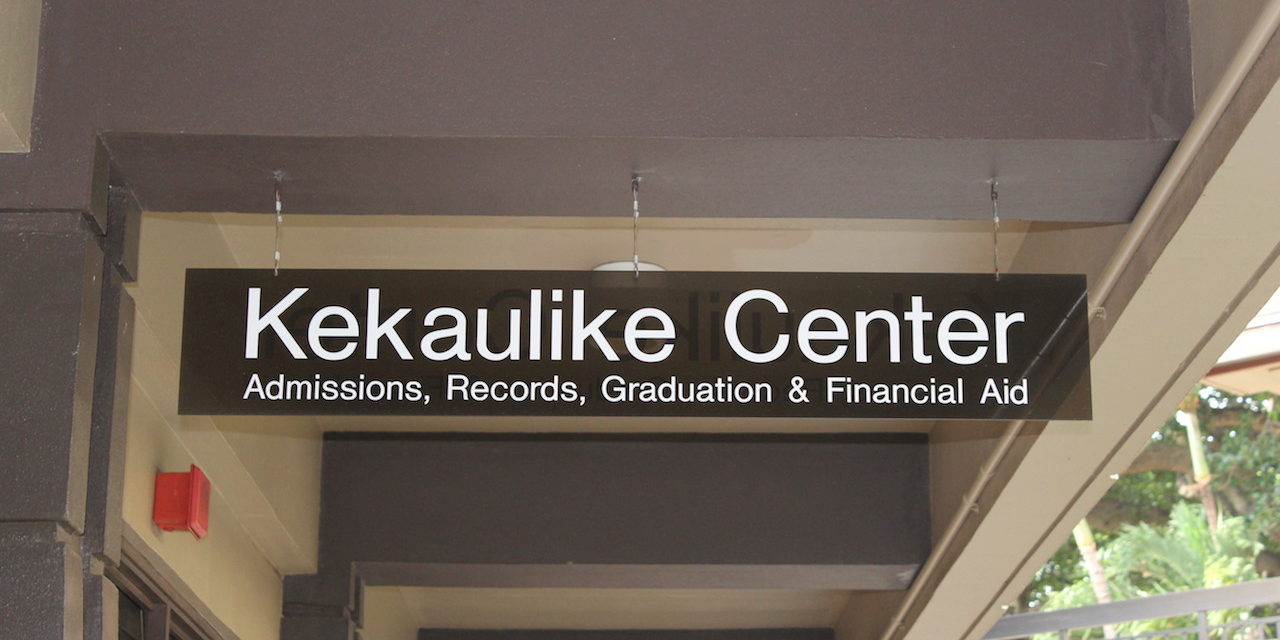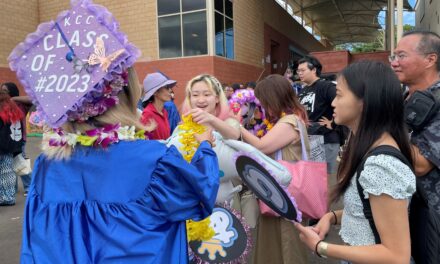By Keahi Akina | Staff Writer
The Federal Application For Student Aid, the FAFSA, application opened on Oct. 1. The FAFSA, however, can be incredibly confusing and complicated. La’amea Paulino, the KCC financial aid coordinator and program facilitator of Ka Pōhaku Kihi Paʻa (part of the Native Hawaiian Academic Advancement Program (NHAA), provided some answers to the commonly asked questions for students about FAFSA.
What do I need to know about the FAFSA deadline?
The FAFSA itself does not have a deadline, but schools have priority deadlines. A school’s priority deadline is totally up to the college or university (ex. KapCC’s priority deadline is March 1; UH Mānoa’s priority deadline is February 1). This essentially means that students who have submitted their FAFSA before this date are considered for certain funds (e.g. institutional scholarships, state grants, etc.). Students who submit their FAFSA after the priority deadline are still eligible to be considered for these funds, but they will be evaluated on a first-come, first-served basis. Certain awards such as federal student loans or the federal pell grant are based on a formula curated by the federal government. Therefore, if you are eligible for the pell grant and/or federal student loans, you will essentially receive it regardless of when the FAFSA is submitted.
Any general tips for students?
Think ahead! Start early! The FAFSA can seem intimidating so it is easy to put off starting and finishing the FAFSA in a timely manner. The earlier you start, the more time you have to gather the necessary documents and information needed to complete the FAFSA. If you are a dependent student and need to provide your parent’s information, this also gives more time for your parents to complete the FAFSA as well.
Is the FAFSA relevant to scholarship applications?
Some scholarships rely on the completion of your FAFSA, so ensuring that you complete your FAFSA on time increases your chances of getting those scholarships.
If my parent is filling out the application do they answer from my perspective or theirs?
Even if your parent is filling out the FAFSA for you, whenever the FAFSA form says “you” or “your”, it is referring to the student. Questions pertaining to parental information will be specified in the question.
What about documents? Is there a way to get the needed information online?
Make sure you have all documents readily available (e.g. social security numbers, W2 forms for both you and your parents, 1040 forms for both you and your parents, untaxed income records, etc.)
Using the IRS Data Retrieval Tool on the FAFSA definitely simplifies the process. It also helps reduce the chances of you being selected for verification. If the IRS Data Retrieval Tool is used, that is less information you need to manually input. However, you will still need to answer other questions related to yours and your parent’s assets and other financial questions.
Double checking for accuracy is vital and can also help from being selected for verification. Make sure social security numbers, driver’s license numbers, and legal first and last names are used and are input accurately.
What does “household size” mean?
Understanding the definitions of terms used on the FAFSA is also important. For example, “household size” can be confusing for some, especially for many ʻohana in Hawai’i who may have hānai siblings, aunties and uncles, or grandparents living with them. A studentʻs household size should always include yourself, and if you are a dependent student, your parents and siblings. Siblings and other members in the household only need to be included if they receive half their support from your parents. For example, if you have a younger sibling still in high school living with your parents and an older sibling who is not dependent on your parents financially, only the younger sibling should be included.
Both students and parents need an FSA ID which is the username used during sign-in. Parents will need to log in with their FSA ID to sign the FAFSA.
What about students who no longer live with their parents and would like to file independently?
Your dependency status is determined by a set of questions that are asked on the FAFSA. Essentially, you can only be considered an Independent student if you will be 24 by the year you are applying for (for the 2022-2023 FAFSA, if you were born before Jan. 1, 1999, you are considered an Independent student). Although it is a disadvantage to many students, federal aid is based on the premise that it is primarily a student and their family’s responsibility to pay for your education.
You can find the full list of questions asked to determine your dependency status here.
What resources are available for students who need help applying for the FAFSA?
Students at KCC can find help at a number of places. The financial aid office can be reached at kapfao@hawaii.edu or (808)734-9537. Their website can be found here. The Maida Kamber Center also offers support. Paulino’s email is spencerp@hawaii.edu. The link to Ka Pōhaku Kihi Paʻa, part of the Native Hawaiian Academic Advancement Program (NHAA), can be found here.






